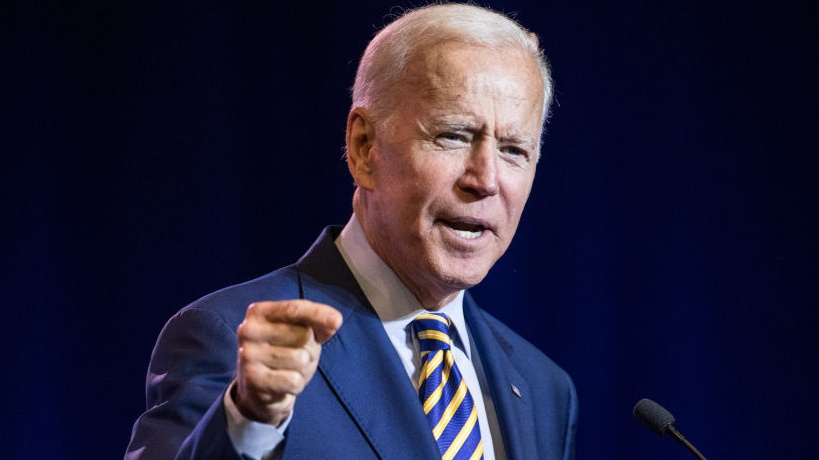Former Vice President Joe Biden revealed a new criminal justice proposal Tuesday that would lower incarceration rates, end mandatory minimum sentences and attempt to eliminate racial disparities in sentencing — all problems exasperated by the 1994 crime bill backed by then-Senator Biden.
The 10-page plan entitled "The Biden Plan for Strengthening America's Commitment to Justice" includes many proposals, like ending the use of private prisons on a federal level, as well as eliminating nearly all uses of solitary confinement.
If elected, Biden commits to using the clemency powers of the presidency, much in the same way as former President Obama, to reduce long sentences for drug and non-violent offenses. He also announced he would end sentencing disparity between crack and powder cocaine, which has been largely blamed for the racial disparities in sentencing today.
Despite the Brennan Center for Justice stating that the 1994 crime bill aided in quelling crime, Biden's Democratic opponents have begun to rip the former vice president's past record.
"It’s not enough to tell us what you’re going to do for our communities, show us what you’ve done for the last 40 years," Sen. Cory Booker tweeted. "You created this system."
It’s not enough to tell us what you’re going to do for our communities, show us what you’ve done for the last 40 years. You created this system. We’ll dismantle it.
— Cory Booker (@CoryBooker) July 23, 2019
Unlike Biden's response to Sen. Kamala Harris's attack during the first Democratic debate, former Vice President Biden and his team were prepared for this attack on his record.
"He knows that a number of people are going to try to weaponize his service in Congress against him — and I know some people in this race would like to believe he never served as vice president to President (Barack) Obama," a senior Biden campaign official who briefed reporters on the plan said to CNN.
Biden's plan would allow a $20 billion investment in a grant program for states, counties and cities to implement efforts that have proven to reduce crime and incarceration. It also calls for the creation of a task force outside of the U.S. Department of Justice to examine discrimination throughout the justice system, as well as a $300 million commitment to the Community Oriented Policing Services (COPS) program, which focuses on better training for community police officers.
